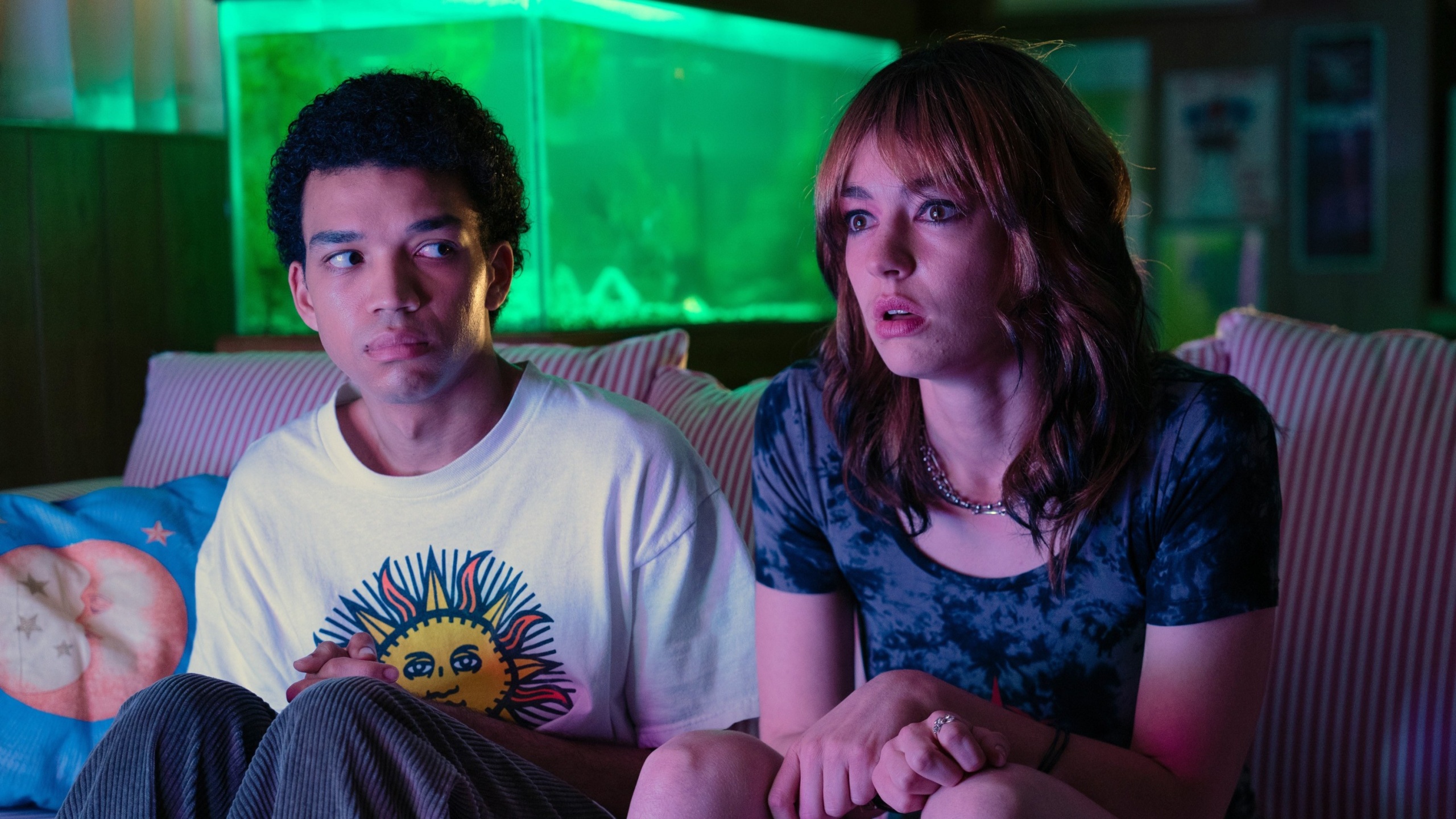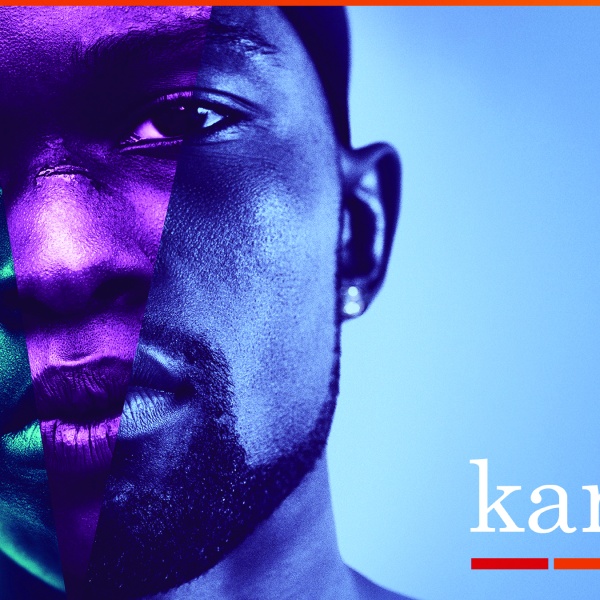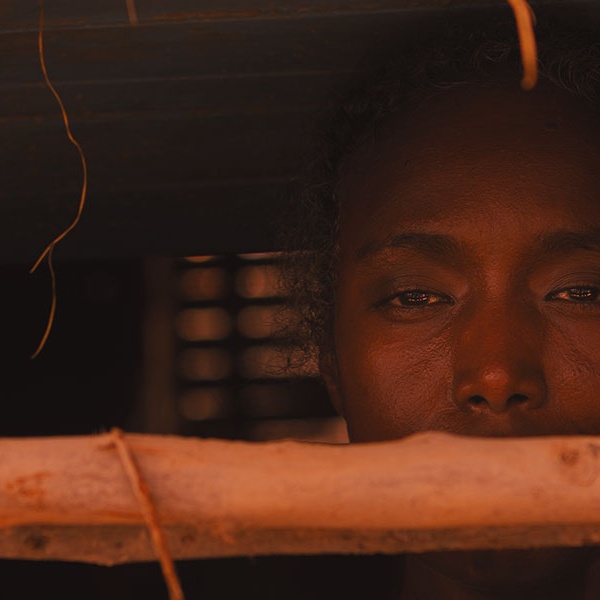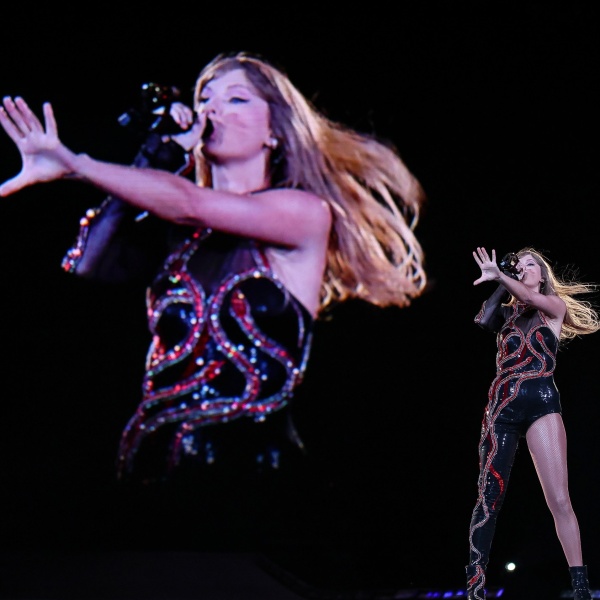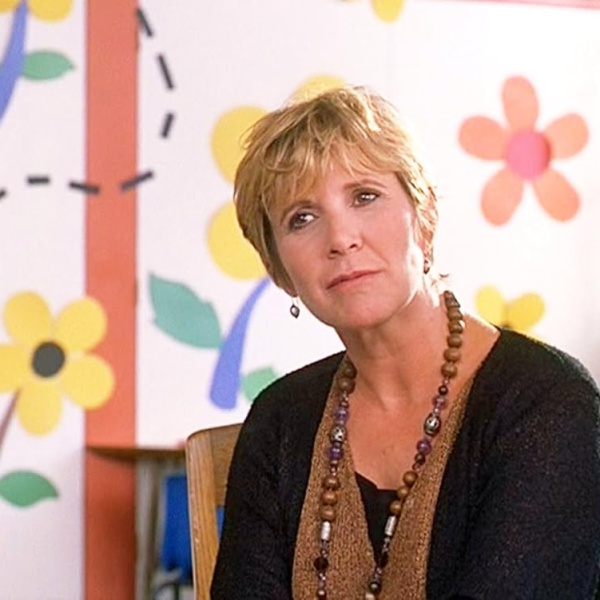For once, the global film festival circuit is in perilous waters while Los Angeles — the city that Hollywood built, but can’t seem to retain a film festival — is hosting a vital resurgence of year-round screening series and niche festivals created in pursuit of love, not money.
This weekend (April 4-7) brings the inaugural Los Angeles Festival of Movies (LAFM), operating in three venues far east of the 405: Eagle Rock’s Vidiots, Filipinotown’s 2220 Arts + Archives, and Chinatown’s Now Instant Image Hall.
The LA cinephile scene is meanwhile thriving elsewhere, too. American Cinematheque returned to its gorgeously refurbished Egyptian Theatre in November and just announced a new documentary film festival, This Is Not a Fiction, to usher in its 40th anniversary. Plus, Quentin Tarantino’s emblematic, century-old, single-screen Vista Theater reopened, playing new releases like “The Zone of Interest” and “Dune: Part Two” as well as 35mm and 70mm retrospectives in its Video Archives Cinema Club.
Similarly, Vidiots reopened last June in a new location with a new area code. After operating as a beloved video store and exhibition space in Santa Monica since 1985, it’s become an eastside resource inside the restored vintage Eagle Theater.
Suddenly, vibrant and quirky film events fill an industry town — one that’s been oddly resistant to their charms — while established festivals around the world face daunting challenges.
Sundance, which recently saw the resignation of CEO Joana Vicente, also must contend with a theater chain’s bankruptcy that could impact the festival’s Park City screens in 2025. This year’s Berlinale was embroiled in international controversy for undercutting its own filmmakers’ freedom of speech. Last week, Hot Docs, the largest Canadian documentary festival, saw the majority of its programmers resign a month before the event.
Los Angeles knows those pain points. In 2018, the once-iconic Los Angeles Film Festival closed its doors after 18 years. AFI FEST, a prestigious mid-fall staple hosted in the same complex as the Oscars, changed leadership and downsized during the pandemic. (This year, AFI FEST runs October 23 through 27.) Outfest, one of the nation’s preeminent LGBTQIA+ festivals, imploded last October (though perhaps it could return in a smaller format).
None of that fazed LAFM co-founders Micah Gottlieb and Sarah Winshall. They’re less concerned with how their festival fits into the circuit than being part of the city that gives the event its name. “We’re just one part of the landscape,” Gottlieb said. “And sort of doing our own thing,” Winshall added.
LAFM offers a compact, eclectic program of 11 narrative, experimental, and documentary features as well as a preview of the HBO docuseries “Ren Faire,” executive produced by the Safdies; a shorts program; and two conversations, one with Kim Gordon and another with “All Dirt Roads Taste of Salt” director Raven Jackson. It opens with the LA premieres of Jane Schoenbrun’s queer Sundance slow-singe “I Saw The TV Glow” and other recent festival titles such as “New Strains” (Rotterdam), “Malqueridas” (Venice), and “The Human Surge 3” (Locarno).

The lineup also includes three restorations, including Chantal Akerman’s 1982 atmospheric masterpiece “Toute Une Nuit” and Bridgett M. Davis’s 1996 feature “Naked Acts.” It’s a program that doesn’t reach for the mainstream; with an assortment of high-, mid-, and lowbrow fare, each event feels like it was pulled from a cabinet drawer of arthouse wonders.
Presenting the festival are streaming platform MUBI and Mezzanine, a local nonprofit founded in 2022 that programs rare, archival, and ephemeral works. With Gottlieb serving as its artistic director, these range from Maria Saakyan’s 2006 Armenian classic “The Lighthouse” to Marguerite Duras’ 16mm “Nathalie Granger.” Its board members include “I Saw the TV Glow” producer Winshall; Abby Sun, director of artist programs at the International Documentary Association and editor of Documentary magazine; filmmaker and Sundance shorts programmer Adam Piron; and Dylan Redford, a filmmaker and actor (and Robert Redford’s grandson). Mezzanine’s vision statement credits “the ciné-club model native to France and building on Los Angeles’ history of alternative film spaces” as inspirations.
While much of the mainstream industry may live on LA’s Westside and cringe at the idea of crossing the 405, it’s LA’s Eastside that has a number of new and refurbished filmgoing venues like 2220 Arts and Archives in historic Filipinotown (a Mezzanine favorite), Chinatown’s Now Instant Image Hall (which operates in adherence to the Palestinian Campaign for the Academic and Cultural Boycott of Israel), and Eagle Rock’s cherished Vidiots, all within a 4-5 mile radius.
Alternative spaces are key to understanding the city’s art-film resurgence. Even in a company town where global Hollywood studios dictate publicity, output, and the self-aggrandizing rigamarole of awards season, there is an appetite for a cinema culture focused on local communities and driven by neighborhood-venue collaborations. It caters to filmmakers who intentionally work in the industry’s penumbra and welcomes anyone invested in cinema as a collaborative effort.
“Los Angeles has always had a robust but somewhat fraught alternative film culture,” said Gottlieb, who wrote his master’s thesis at UCLA on alternative film exhibition in LA. “You also have the art world in LA, but until recent years there weren’t that many spaces where those communities could intersect. In a city like New York, where you have the Lincoln Center and MoMA, cinema is treated like an art form just like literature, painting, and fashion.”
Gottlieb said he started Mezzanine out of his interest in showcasing movies that hadn’t screened in LA in many years and weren’t available on home video or streaming — and to create screenings with people from other corners of the arts. It began as a repertory series that soon added one-off screenings of new independent films, a category increasingly banished to streamer libraries or that elude distribution altogether.
When Gottlieb met Winshall, whose Smudge Films credits also include 2024 Sundance premiere “Good One” as well as Rotterdam title “Dream Team,” he said they “realized the city really could use a festival that’s devoted primarily to new independent films that may or may not have distribution, that may or may not be traditionally commercial or even seeking to get the calling card feature made in Hollywood.”
When Mezzanine received far more film submissions than it could show, Winshall thought it represented opportunity. “There aren’t a lot of places in LA where I can count on an audience to come out the same way they do for a Mezzanine screening,” Winshall said. “So what if we took all of those filmmakers reaching out, put them in a bucket, and said, ‘Hey, we’ll get back to you … in April.’”
That became LAFM. “It’s like a tentpole event, there’s a bit more fuss to be made, and we could book films that might not necessarily be booked into a series, films that might need those laurels if they’re going to have an LA premiere,” Winshall said.
It also represents something resolutely unglamorous: the opportunity to build community.
“I think people make a lot of assumptions about Los Angeles as a city and as a culture,” Gottlieb said. “They say, ‘Nobody reads in LA,’ or that it’s somehow an anti-intellectual culture. If you go to any of these venues on the Eastside, to a poetry reading at 2220 Arts, you will find evidence to the contrary. For us, it was a matter of wanting to show things we really believed in and having to make them legible and accessible at the same time.”

Maggie Mackay, executive director of Vidiots who was a longtime senior programmer of the Los Angeles Film Festival, said LA gets a bad rap for being driven solely by grasping show-business aspirants rather than people who find community through a shared love of movies.
“I mean, there is an in-between,” she said. “For me, the most important thing a film festival can do is to reach new people and speak outside of the industry. … People are desperate for lived-in, real-life, community-centric human interaction experiences around an art form. And film is the most social of the arts.”
For Mackay, neighborhood centrism means cultivating new audiences of cinema lovers who embrace festivals such as LAFM, intricate venue partnerships, and the seven-days-a week programming at Vidiots.
“Building this kind of community of cinephiles is a 365-day commitment,” said Jacqueline Lyanga, a prior director of AFI FEST and founder of LA-based organization Global Cinematheque, which just completed a Vidiots program showcasing new international women auteurs. “Local programmers and venues are not only thinking about the short-term but also about the long-term impact that a screening and the promotional opportunities can have on a film and its filmmaker’s career.”
Winshall believes community-building naturally organizes itself around venues. “Anecdotally, I have noticed that people in LA tend to be fans of a venue [more than a festival],” she said. “I have friends who will go and see anything at Los Feliz 3 because they live nearby and they know what to expect. That’s their theater.”
That said, she can’t always convince those same friends to drive a few short miles to Vidiots. “LA is such a neighborhood city,” she said, citing the city’s massive sprawl. “What does an LA film festival even look like if you are not trying to help people to not feel like, ‘Ugh, now I gotta go all the way there?’”
Winshall dreams of a future LAFM edition with a shuttle between venues, but each location includes bars and mingling spaces. No one will be stuck “standing on a sidewalk, defeated, because they don’t know where to go,” she said.
Mackay admires how Gottlieb and Winshall approached programming with venues in mind. “They know venues well and program films in venues that make the most sense,” she said. “That is a big part of programming that no one talks about because it’s not sexy to talk about logistics.” Vidiots will host LAFM’s opening as well as its closing night, “Rap World.”
Tucked away in the more humble arthouses and microcinemas east of Hollywood, LAFM tips its hat to a Los Angeles framed anew, to festivity impassioned by community, and to movies writ small yet projected large.
The Los Angeles Festival of Movies launches April 4 in LA.
